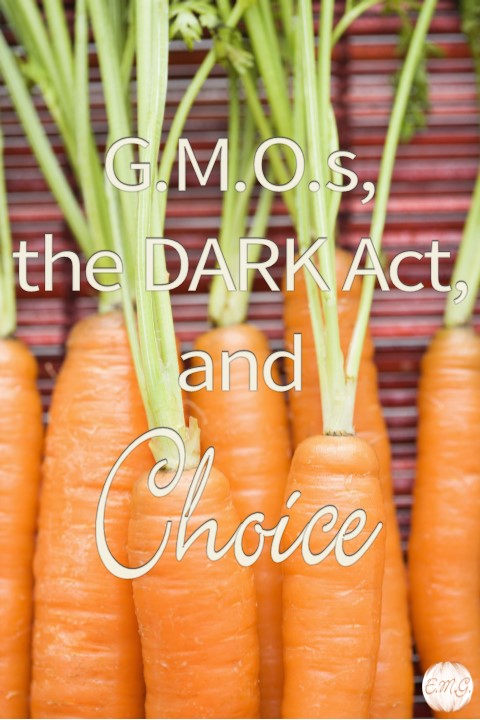G.M.O.s, the DARK Act, and Choice
One thing that came up repeatedly during the course of my recent college education is the insidious nature of genetically modified foods (G.M.O.s) in our markets, and therefore in our bodies. This 10-minute interview between Thrive Market founder and Co-CEO Gunnar Lovelace and Environmental Working Group (EWG) president Ken Cook, GMOs + The DARK Act: An Interview with Ken Cook of EWG, brought it back up in a concentrated and quietly urgent way:https://youtu.be/QtG8bPGOCGA
This 10-minute interview between Thrive Market founder and Co-CEO Gunnar Lovelace and Environmental Working Group (EWG) president Ken Cook, GMOs + The DARK Act: An Interview with Ken Cook of EWG, brought it back up in a concentrated and quietly urgent way:https://youtu.be/QtG8bPGOCGA
G.M.O.s
Genetically modified organisms, commonly referred to as G.M.O.s, have two incarnations, only one of which garners a whole lot of press:
- This incarnation is naturally-occurring. This is genetic modification through cross-pollination, or cross-breeding. It happens as a matter of course, over time.
- This incarnation is engineered. This is genetic modification through science, in which the genetic make-up of a food or animal is altered artificially.
It's incarnation #2 which is most concerning, because of the questionably helpful impact both human health-wise and environmentally.On paper, it sounds like a great idea: Change the genes of certain crops so they are insect-resistant, which reduces the usage of pesticides. In addition, engineer crops to grow faster, and therefore feed more people.In theory... The jury is out, especially - and, arguably, most importantly - at the consumer level.For certain, there's nothing theoretical about the concern of millions of people across the globe. Naturally-occurring modification is one thing; artificial modification is quite another, no matter how cleverly it's compared to its natural sibling.
H.R.1599, aka The DARK Act
The DARK Act (Deny Americans the Right to Know), as it's been dubbed, is legislation that was purportedly developed by food companies, and brought to the U.S. House of Representatives for consideration and vote.This piece of legislation (H.R.1599 - Safe and Accurate Food Labeling Act of 2015), which was passed by a significant margin on July 23 of 2015, dictates that food companies can refrain for identifying the presence of G.M.O. foods in their products on their labels. It now goes to vote at the Senate level.The DARK Act, quite literally, would keep United States' consumers in the dark about what's going into their mouths and their children's mouths.
Environmental Working Group (EWG)
The Environmental Working Group (EWG) gets right to the point: "More than 60 nations require labeling of genetically modified food. But American consumers are left in the dark without the basic right to know if the food they eat or feed their families has been genetically modified."I know for me (and have my hopes for you) and my family that I want to know if a food is comprised of G.M.O.s, or is, on its own, genetically modified.I want the right to choose. That's why I'm one of the 1.4 million who have signed a petition letting Congress know that I want G.M.O. labelling to be a requirement. You can read and sign the petition here.
Education and Empowerment
There's more empowering information about how we can educate ourselves and support the demise of H.R.1599 available on Just Label It.And if you want a great source for products that are G.M.O.-free, look no further than Thrive Market.Learn about Big Food. Pay attention to labels when you shop. Speak out and stand up, if you're so inspired and inclined.Together, we can urge Congress to vote down this bill, when it comes before them. Let's do this.